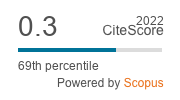Aussies, Rogues and Slackers: Simon Hanselmann’s Megg, Mogg and Owl Comics as Contemporary Instances of Rogue Literature
DOI:
https://doi.org/10.18778/2083-2931.09.08Keywords:
comics, grunge fiction, rogue literature, sharehouses, serialized storytellingAbstract
This paper examines the Megg, Mogg and Owl stories of Simon Hanselmann, an Australian artist whose serialized comics both depict acts of contemporary roguery committed by a group of friends in an inner city sharehouse and test the generic limits of its own storytelling conventions, thereby becoming contemporary instances of “rogue texts.” The paper positions the adventures of Megg, a witch, Mogg, her familiar, Owl, their housemate, and associated characters including Booger and Werewolf Jones as contemporary variations of both the Australian genre of grunge fiction and the broad international tradition of rogue literature. It shows how Megg, Mogg, Owl and their friends use the structure of the sharehouse to make their own rules, undertake illegal behaviour, and respond to the strictures of mainstream society, which alongside legal restrictions include normative restrictions on gender and behaviour. It shows the sharehouse as a response to their economic, as well as cultural and social conditions. The paper then shows how Megg and particularly Owl come up against the limitations of the permissiveness and apparent security of their “rogue” society, and respond by beginning to “go rogue” from the group. Meanwhile, the text itself, rather than advancing through time, goes over the same chronology and reinscribes it from new angles, becoming revisionist and re-creative, perhaps behaving roguishly against the affordances of episodic, vignette form. The paper argues that Simon Hanselmann’s Megg, Mogg and Owl comics can be understood as contemporary rogue texts, showing characters responding to social and generic limits and expressing them through a restless and innovative comics text.
Downloads
References
Brown, Hillary. “Cartoonist Simon Hanselmann Revisits the ‘Minimum- Security Torture Chamber’ of High School in One More Year.” Pastemagazine.com. Paste 13 Jun. 2017. Web. 30 Jan. 2018.
Google Scholar
Collins, Sean T. “‘Disgusting Creatures’: The Simon Hanselmann Interview.” Tcj.com. The Comics Journal 6 Jun. 2013. Web. 30 Jan. 2018.
Google Scholar
Didion, Joan. The White Album. New York: Macmillan, 1990. Print.
Google Scholar
Eco, Umberto. “The Myth of Superman.” Trans. Natalie Chilton. Diacritics 2.1 (1972): 14–22. Print.
Google Scholar
Griffin, Alex. “A Brief History and Short Future of the Imaginary Sharehouse.” Voiceworks 104 (2016): 19–25. Print.
Google Scholar
Hanselmann, Simon. Megahex. Seattle: Fantagraphics, 2014. Print.
Google Scholar
Hanselmann, Simon. Megg & Mogg in Amsterdam (And Other Stories). Seattle: Fantagraphics, 2016. Print.
Google Scholar
Hanselmann, Simon. One more year. Seattle: Fantagraphics, 2017. Print.
Google Scholar
Kleparski, Grzegorz A., and Anna M. Pietrzykowska. “Elizabethan Rogue Literature.” Studia Anglica Resoviensia 2 (2001): 122–31. Print.
Google Scholar
Leishman, Kirsty. “Australian Grunge Literature and the Conflict between Literary Generations.” Journal of Australian Studies 23.63 (1999): 94– 102. Print.
Google Scholar
Mayall, David. “Egyptians and Vagabonds: Representations of the Gypsy in Early Modern Official and Rogue Literature.” Immigrants & Minorities 16.3 (1997): 55–82. Print.
Google Scholar
Murrie, Linzi. “Changing Masculinities: Disruption and Anxiety in Contemporary Australian Writing.” Journal of Australian Studies 22.56 (1998): 169–79. Print.
Google Scholar
Nadel, Dan. “A Conversation with Simon Hanselmann.” Tcj.com. The Comics Journal 7 Jul. 2017. Web. 30 Jan. 2018.
Google Scholar
Nicoll, Helen, and Jan Pienkowski. Meg and Mog. London: Puffin, 1972. Print.
Google Scholar
Randle, Christopher. “Glamorously Housebound: An Interview with Simon Hanselmann.” Hazlitt.net. Hazlitt 3 Jun. 2015. Web. 30 Jan. 2018.
Google Scholar
Reith, James. “Simon Hanselmann: ‘I Hate Twee Art. Life is Not Nice.’” Theguardian.com. Guardian 14 Apr. 2016. Web. 30 Jan. 2018.
Google Scholar
Salgādo, Gāmini. The Elizabethan Underworld. Stroud: Sutton, 1984. Print.
Google Scholar
Vernay, Jean-François. “Sex in the City: Sexual Predation in Contemporary Australian Grunge Fiction.” Journal of the Australasian Universities Language and Literature Association 2007.107 (2007): 145–58. Print.
Google Scholar
Downloads
Published
How to Cite
Issue
Section
License

This work is licensed under a Creative Commons Attribution-NonCommercial-NoDerivatives 4.0 International License.













